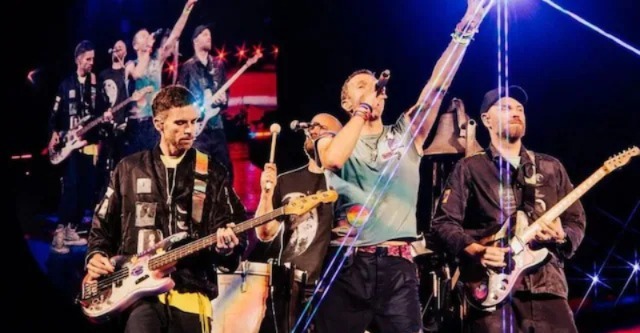Global music sensation Coldplay has officially hinted at their retirement from touring, sparking waves of emotions among fans across the world. The announcement comes as the band wraps up their “Music of the Spheres” tour, with India being one of the standout stops on their journey. However, what should have been a joyful occasion for Indian fans has been marred by widespread controversy surrounding the black marketing of concert tickets, raising concerns about accessibility and fairness in the entertainment industry. Coldplay’s decision to scale back and potentially retire from live performances has added a layer of poignancy to these events, leaving fans grappling with mixed emotions as they face the possibility of never seeing the band live again. In this article, we’ll explore the details of Coldplay’s retirement announcement, the chaos surrounding their concert in India, and the larger implications of ticket black marketing in the entertainment world. Coldplay, one of the world’s most beloved rock bands, has been captivating audiences for over two decades. Fronted by the charismatic Chris Martin, the band’s music has spanned genres, generations, and continents, amassing a dedicated fanbase. Coldplay is known for their electrifying live performances, which feature breathtaking visuals, immersive experiences, and heartfelt performances that leave a lasting impression on fans. The announcement of their potential retirement from touring came as a shock to many. During an interview with BBC Radio 2 in 2023, Chris Martin casually mentioned that Coldplay would stop making new music by 2025, hinting that their touring days might also be limited. Martin’s exact words were, “We’re only going to do a few more tours, and then we’ll call it quits in terms of being a touring band.” This cryptic yet definitive statement has led many to believe that Coldplay’s touring days are nearing their end. For fans, especially those in regions like India, where international artists don’t often perform, the news has been met with a mix of sadness and urgency. Coldplay’s Indian fanbase, in particular, has been fervent, eagerly awaiting their live shows after a long hiatus since the band’s iconic 2016 performance at the Global Citizen Festival in Mumbai. In 2024, Coldplay announced that India would be one of the stops on their “Music of the Spheres” world tour, and Indian fans were thrilled at the prospect of seeing the band live again. The announcement led to a frenzy as fans scrambled to purchase tickets. However, as with many high-demand events, the excitement soon turned into frustration as tickets sold out within minutes, only to reappear on resale platforms at exorbitant prices, triggering widespread accusations of black marketing. Ticket black marketing, or the illegal resale of tickets at inflated prices, has long been a problem in India, and Coldplay’s concert brought the issue to the forefront once again. Many fans took to social media to express their anger and disappointment, with some reporting that tickets, originally priced at around ₹10,000, were being resold for as much as ₹50,000 or more on unauthorized platforms.
Coldplay Announces Retirement Amid Black Marketing Of Concert Tickets In India: ‘We’re Only Going To Do…’

